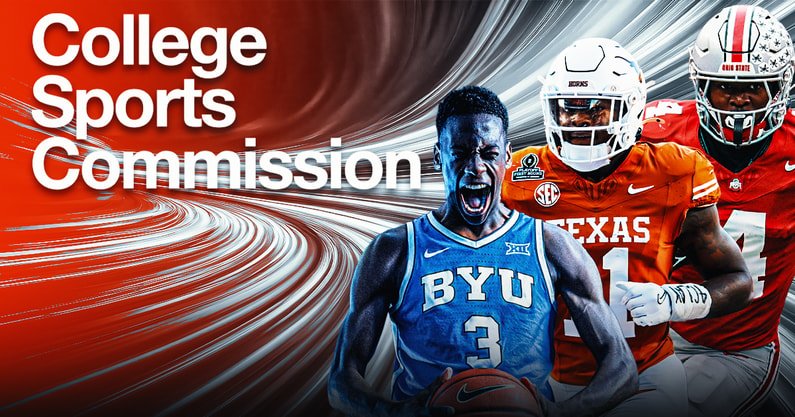College Sports Commission updates guidance allowing NIL collectives to pay athletes

The College Sports Commission, college sports’ new enforcement entity, released updated guidance to schools on Thursday, allowing booster-funded NIL collectives to push deals through the NIL Go clearinghouse. The clearinghouse will treat NIL collectives as a typical business, but the organizations must conform to the “valid business purpose” requirements outlined in the House settlement.
It’s a turn of events after the CSC released guidance earlier this month stating that NIL collectives could not directly pay athletes. Plaintiffs’ attorney Jeffrey Kessler and his other co-counsel, Steve Berman, responded with a letter to the power conferences and NCAA officials calling for the guidance to be retracted.
“Whether or not payments to student-athletes by collectives are permissible under the Settlement will be evaluated on a case-by-case basis – first by the College Sports Commission and then by a neutral arbitrator if the CSC determination is challenged by the student athlete,” the CSC and House case Class Counsel wrote in a statement regarding Thursday’s guidance. “NCAA rules continue to prohibit Associated Entities from making payments for play in contrast to permitted NIL payments.”
Collectives can strike NIL deals as long as transactions meet three benchmarks, per the guidance. Collectives must deliver the public goods or services, turn a profit and fall within Deloitte’s compensation range.
The guidance distributed Thursday also outlines what NIL collectives would face if they do not provide information and documentation to establish compliance.
“Refusal to provide this information or the provision of insufficient information to establish compliance may result in deals not being cleared by the CSC,” the guidance states.
In a statement provided to On3 from College Sports Commission CEO Bryan Seeley, the college sports enforcement officer made clear the CSC will not slow down in its enforcement of NIL collectives.
“The College Sports Commission will enforce the settlement as written,” Seeley said. “Pay-for-play will not be permitted, and every NIL deal done with a student-athlete must be a legitimate NIL deal, not pay-for-play in disguise.”
Top 10
- 1New
Top 25 Defensive Lines
Ranking the best for 2025
- 2
Big Ten Football
Predicting 1st loss for each team
- 3Hot
College Football Playoff
Ranking Top 32 teams for 2025
- 4
SEC Football
Predicting 1st loss for each team
- 5Trending
Tim Brando
Ranks Top 15 CFB teams for 2025
Get the Daily On3 Newsletter in your inbox every morning
By clicking "Subscribe to Newsletter", I agree to On3's Privacy Notice, Terms, and use of my personal information described therein.
Athletes are required to submit deals for a “fair‑market‑value evaluation” within five business days of execution. The decision from the CSC to update its guidance around NIL collectives could stave off any forthcoming lawsuits.
“We were already talking to an attorney,” an NIL collective leader recently told On3. “And then Friday, Kessler and Berman came out and reprimanded the NCAA and CSC about the guidance. Who are they to determine what a valid business purpose is? If they really want this thing to work, they need to approve more than they deny. They need to give everybody some grace and not be iron-fisted.
“Not to say the quiet part out loud that we’re trying to kill collectives. They just provided the opening statement for the first lawsuit against them. That you’re going to treat people differently. Or people are going to start paying under the table, or kids aren’t going to submit deals.”
Attorney Tom Mars, who is representing multiple NIL collectives, did not rule out filing suits against the CSC.
“It should be concerning that it took the commissioners more than a week to agree on the language of the new CSC guidance,” he posted on X. “That speaks volumes about their ability to agree on anything. Stephen King wrote a 219-page novel in less time than it took them to issue a two-page memo.”